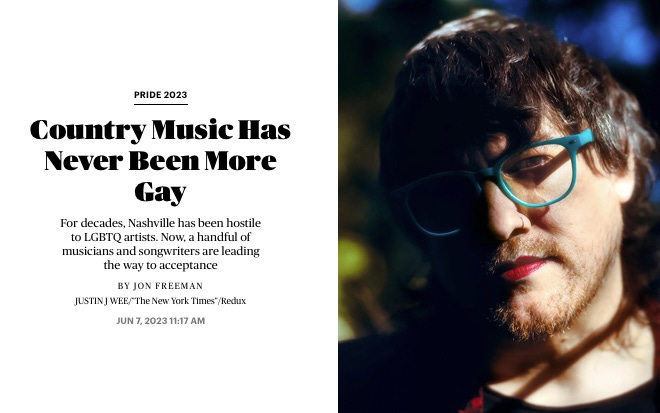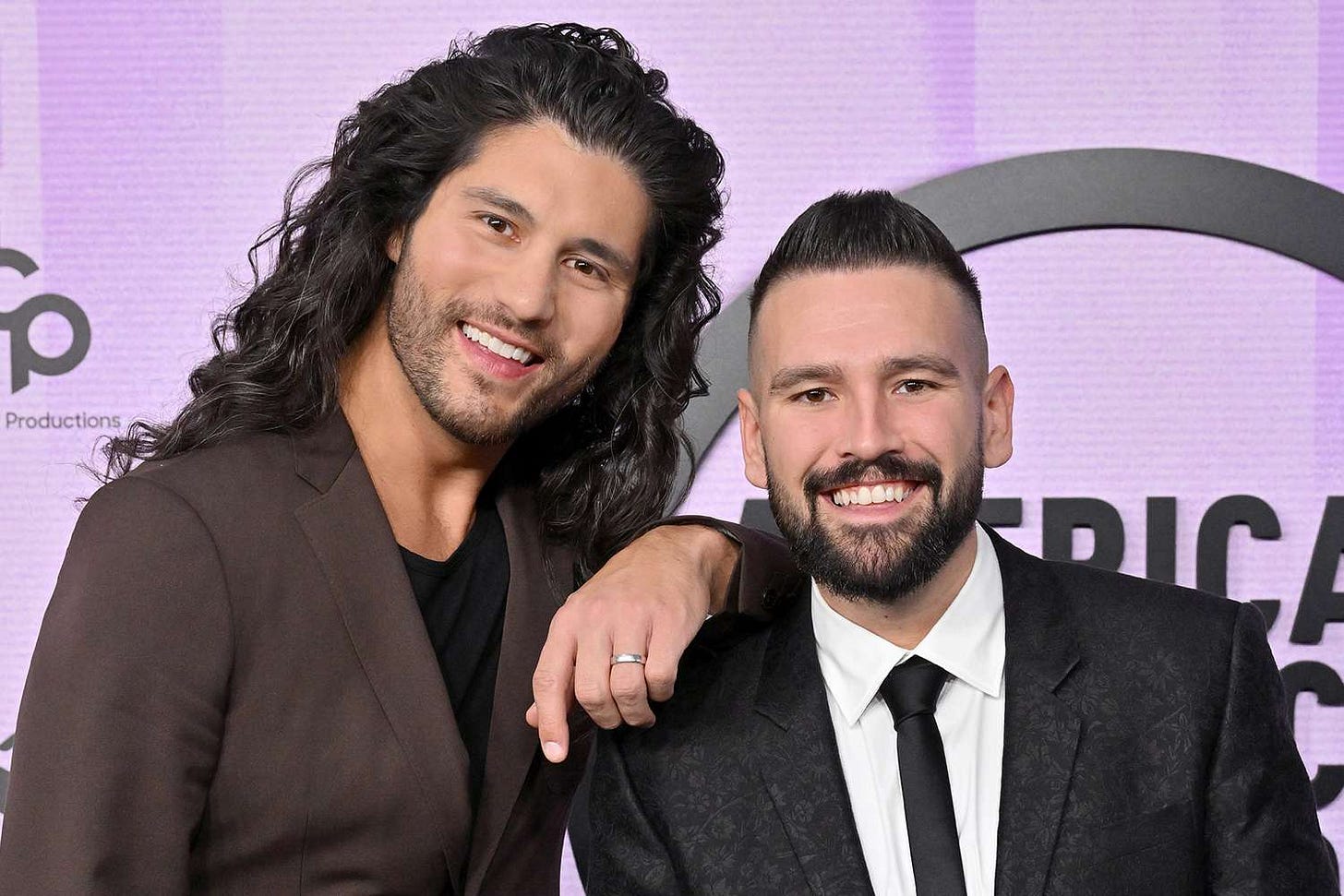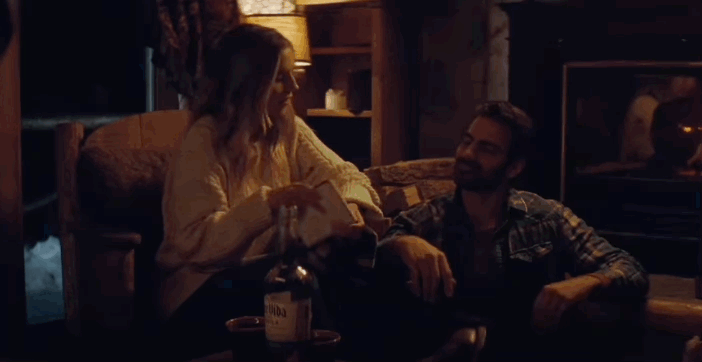“Country Music Has Never Been More Gay,” writes Jon Freeman at Rolling Stone. He’s right. Part of that, of course, is that country music has become literally gay: More and more openly gay performers are taking up the country label, singing about gay things, tilting the genre toward a gayer focus. This is true of pretty much every major pop culture institution these days, it’s all going pretty gay, though it seems particularly pronounced in country music. I mean one of the most up-and-coming gay talents in Nashville is named, and this is almost hard to believe, Shane McAnally. I’m sorry if it’s offensive to point that out; I couldn’t not do it. There was a time not so long ago when we could all get a nice chuckle out of that sort of thing.
Part of the problem, too, is that country music is becoming gay-adjacent, its onetime-distinctive rough edge softened beyond real functionality, the stars and the content sort of blurring into this indistinguishable, feathery wimpishness of no real value. All I’m saying is it’s getting hard to tell the difference. I mean, one of the biggest acts in “country” today is a two-male duo called Dan + Shay. That’s already pretty gay, a man putting his name next to a + and another man’s name, and the titular Dan and Shay very much themselves look like they could be gay, don’t deny it…
…and their videos are equally pretty gay-ish, just all filled with estrogen and effete gentleness and womanish displays of cringey emotion.
If you’re a gay advocate, an LGBT ally or whatever, maybe it makes you angry to read all of this. Why should it? You should be happy! Maybe you disagree with my assessment but you shouldn’t try and pretend that you’ll be unhappy if it it’s true. This is what gay activists have been working toward for years and it’s finally coming to pass: The queering of the culture! Country music is just a bellwether for it all, a canary in a coal mine. Four decades of effort are finally paying off.
Honestly, beyond all that, country music is becoming gay in the purely pejorative sense—I mean it’s gay in the really offensive way to claim something is gay, like it’s really lame and stupid. Now, every time you make arguments like this, critics always say the same thing: “Country has been reinvented multiple times over the past few decades, and every time it happens country fans get really mad and act like it’s the end of country.” Okay, stipulated, but this time it’s true. Whatever else it may be, country music is in the main no longer country anymore. It has become sort of a subgroup of radio pop, just another indistinguishable playlist of songs that are all mostly made to be shared as memes and nine-second clips on social media and in TikTok videos. The great wheel of sameness has flattened it beyond recognition.
A few years ago Alan Jackson remarked, in an agreeably sort of incomprehensible way, that country music is “gone—and it’s not coming back.” Jackson, who is among the last country music stars whose craft is recognizably sort of country, doesn’t really seem to be able to string too many coherent thoughts together, but he got it right when he noted that at its best and most properly rendered, country once had a “format” that consisted of “steel and acoustic guitar, the fiddle and the way they all came together.” That lineup, he said, “gave you a sound, but also a real feeling or emotions no other music really had." It’s true: Country music sounded different, its own thing. That was fine. It was fine! It’s okay for things to sound different.
Popular country no longer does sound different. It’s increasingly just a mashup of like five different pop genres which are all ultimately the same thing anyway. Here, for example, is Kacey Musgraves singing “Rainbow.” Yes, the song is an allegory for gay stuff. Yes, Musgraves herself has sort of morphed from a rather pretty country belle into this weird, indistinct, almost formless Female Pop Performer. Yes, this is not a country song, it’s just a song, just a normal pop song. It’s also really lame, just a crummy, forgettable song that imprints nothing on your soul and leaves you with no sense of having actually listened to anything. It’s gay.
This is not a country song and she is not a country performer. It’s okay to admit that. We can just call her something else. And yet we’re still obliged to pretend as if Kacey Musgraves is a “country music artist,” she still travels the country circuit as if she really belongs there. Why do we pretend as if this is country? Is country music really that desperate for talent? Is there a shortage of good country artists in the south? Do we have to just take what they give us?
A few years ago the Bebe Rexha song “Meant to Be” got a lot of play all over country music. I say “the Bebe Rexha song” and not “the Bebe Rexha country song” because it’s most assuredly the former and not the latter. Now, I kind of like this song, in a dumb sort of way. But it’s not country. Bebe Rexha is not country. She did have Florida Georgia Line back her up in this song, but I am sorry to report that Florida Georgia Line is also not country, not in any way that really matters. And yet this was all over every country station in every market, like it owned the place or something. It’s a cruel joke, like putting the Teletubbies theme song on a hiphop channel. It doesn’t belong here! Get it out! Why are we acting like this is okay?!
You would think that this stuff might represent some sort of crisis in country music, and in a strictly metaphysical sense that might be true. But in fact country is an extremely lucrative genre; it’s very attractive for young performers today, a great way to break into the wider music world, in large part because country producers have ceased having any meaningful artistic standards and you can just drop the “country” label after a few years and go on your way. By ceasing to be country, country is making more money than it ever did when it was actual, real country. It’s almost the most country irony of all: The good ol’ boys couldn’t make the ends meet with their craft, but Bebe Rexha can. They would write a mournful backwoods lament about that, if anyone still wrote real country anymore.
Well, maybe this is what we want. I guess most music fans, even country music fans, increasingly don’t really want any sort of meaningful variety or distinction in their genres anymore. I think the homogenizing effects of social media and 24/7 Internet life have helped speed this sort of thing along, though it was most assuredly happening before any of that. Whatever the explanation, yes, it’s all pretty gay—literally, and figuratively, and just gayly. Maybe you consider that a victory, but whatever else it is, I am just hard-pressed to see how anyone could consider it good music.





